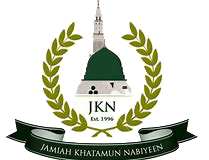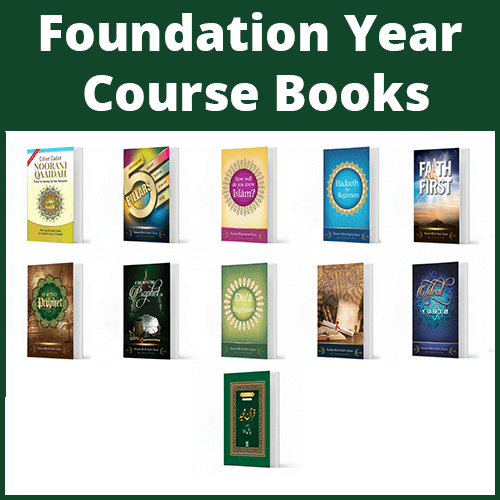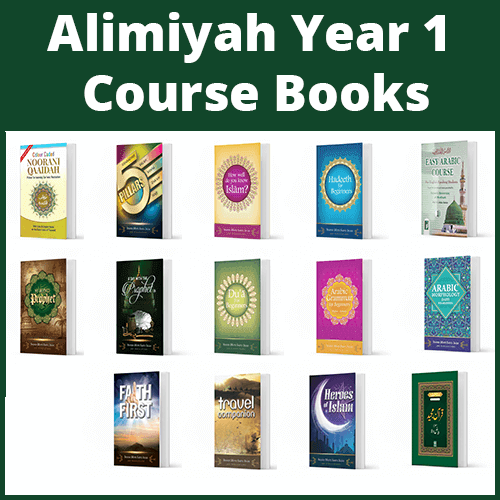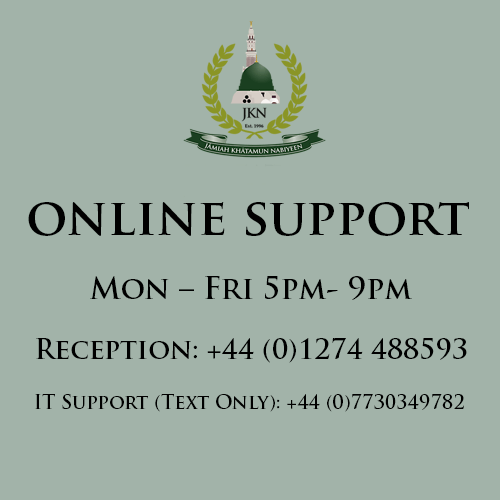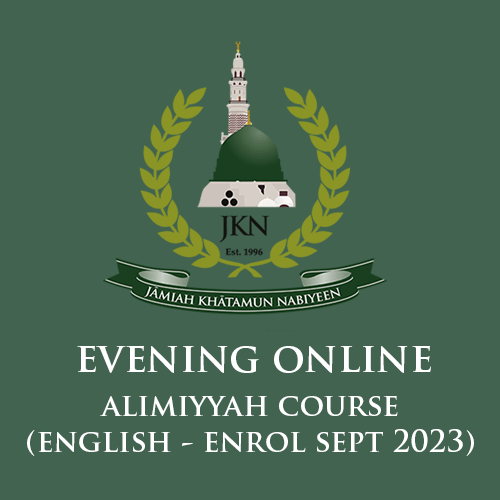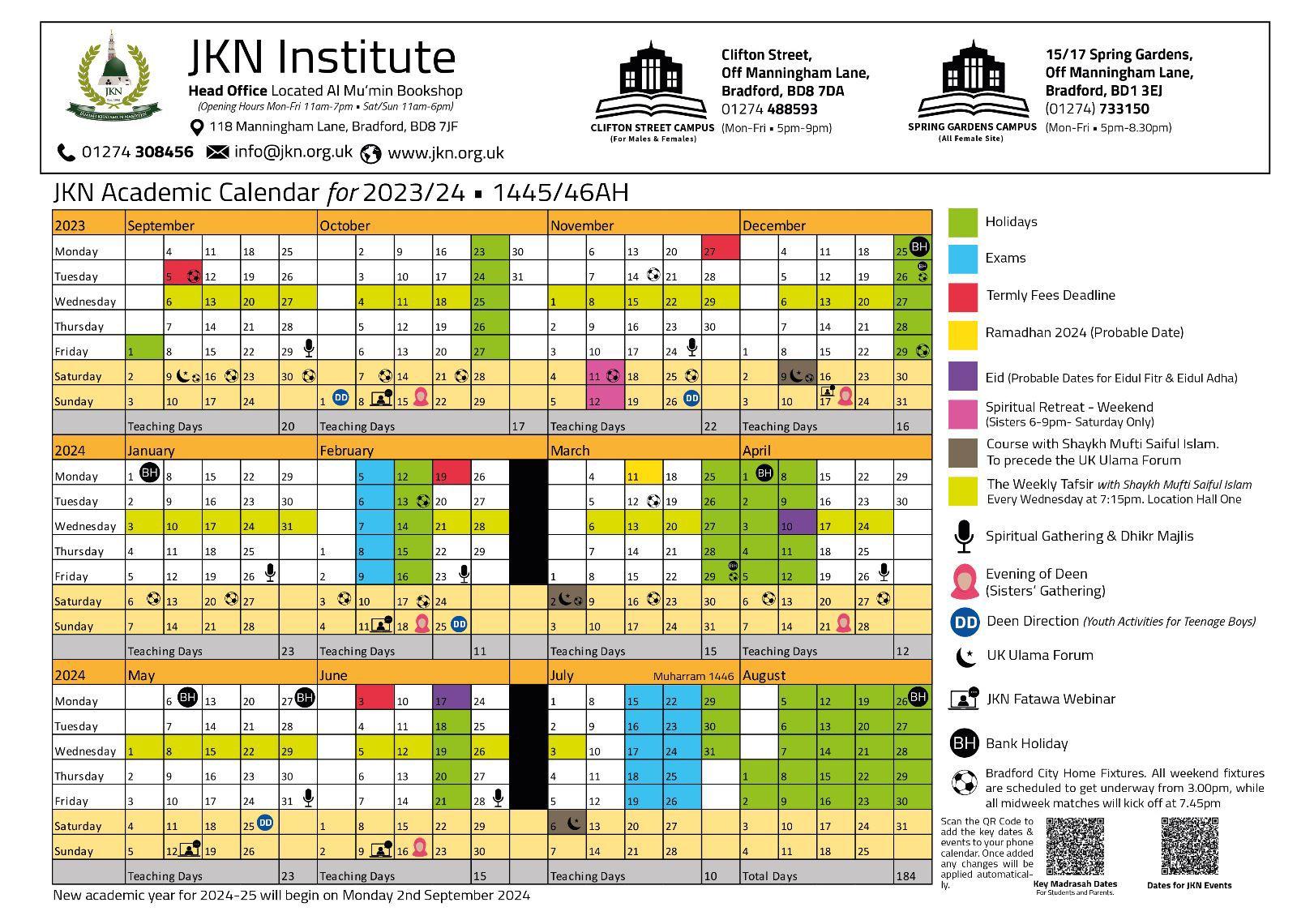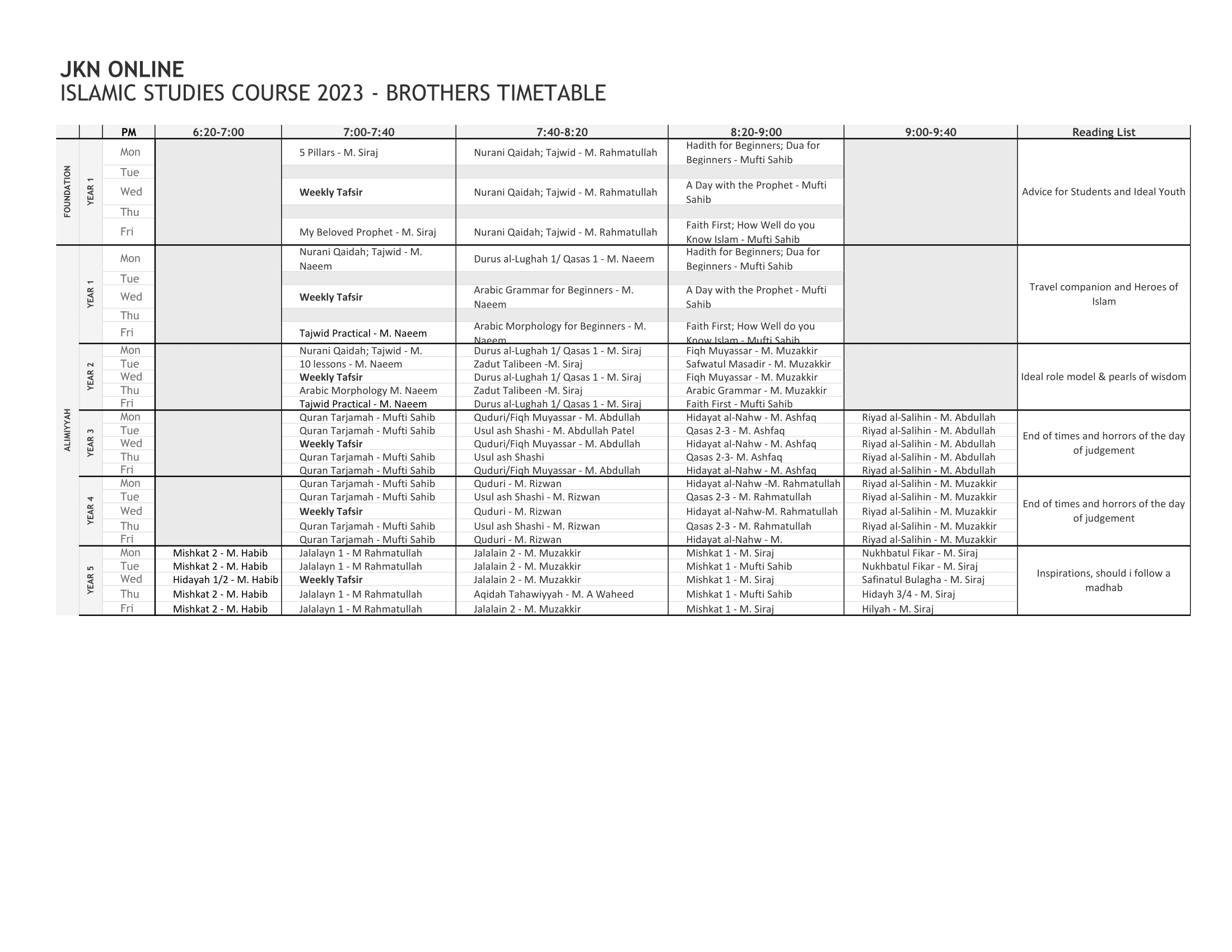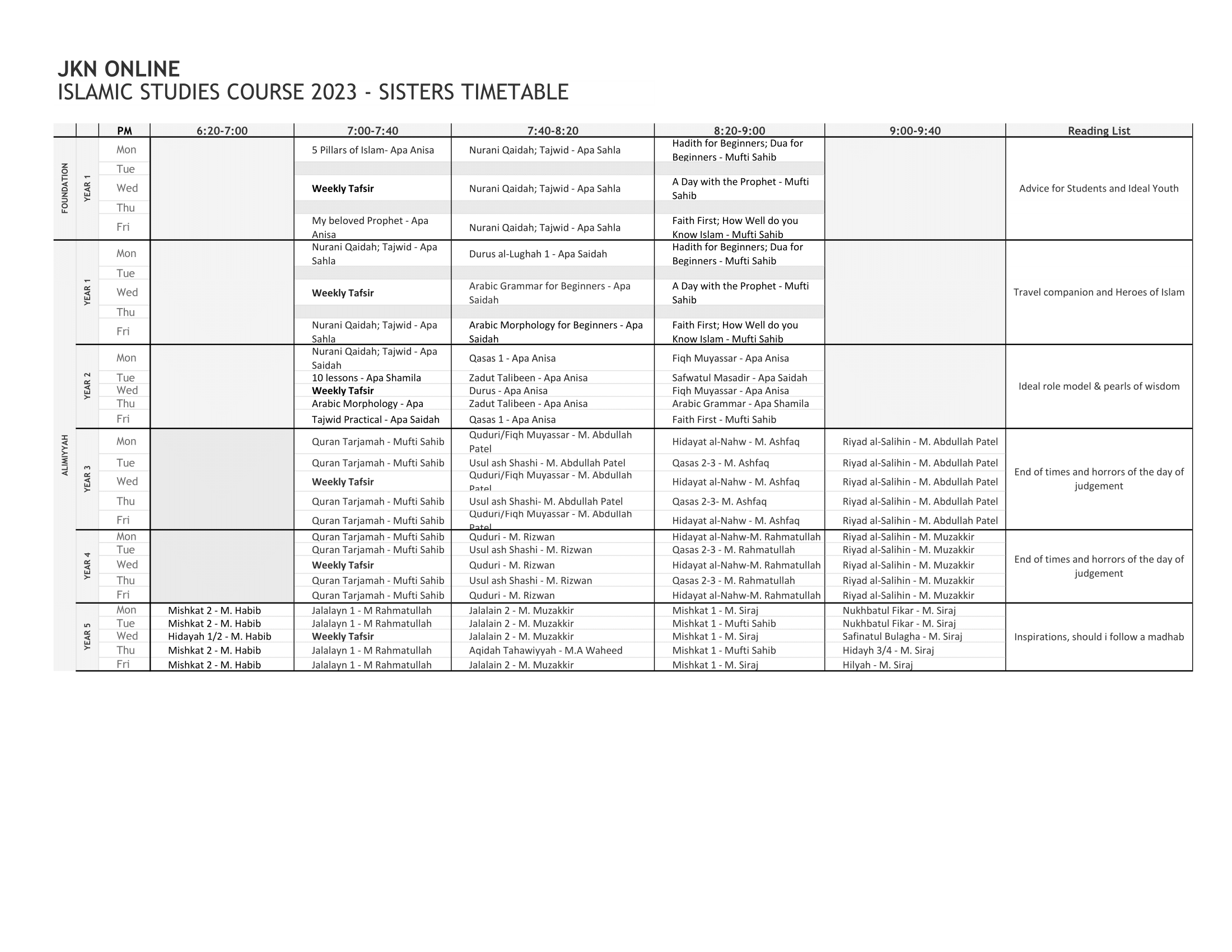JKN Institute Online Alimiyyah Course in English (7 Years)
JKN Institute has more than 25 years of experience in teaching classical Islamic texts to adults from all backgrounds ranging from the most basic texts in Arabic up to some of the most advanced.
JKN Institute is one of the first Institutes in the UK that developed a curriculum for adults with families, those in full-time employment, and with other commitments.
JKN Institute has been continually modifying its course design over the years to suit its students’ needs and prepare them for wider society.
Online Alimiyyah courses are delivered in English.
We have one year Islamic Foundation Programme for beginners (Basic Level Islamic Studies). Students who achieve a good pass can then advance & join our holistic and well-structured Alimiyyah course in English, which is over six years.
Our Vision
To bring the light of Islamic knowledge to all through traditional learning, publications, and audio mediums. To empower Muslims in becoming active Muslim citizens through positive and healthy spiritual, ethical, psychological, physical, and academic values.
We are now enrolling new students. Register Now!
Online Islamic Courses for Males & Females
Online Islamic Foundation (English) – 1 Year
Days: Monday, Wednesday & Friday
Time (UK GMT): 7:00 pm -9:00 pm
The Online Islamic Foundation is a one-year course for those who are learning about Islam for the first time or those who wish to gain more knowledge of the basics of Islam. The foundation year course is designed to teach the essentials of Islam and what is demanded of us as Muslims to fulfil our obligations to our Creator and wider society.
Alimiyyah (English) Year 1
Days: Monday,Wednesday & Friday
Time: 7:00pm – 9:00pm
Alimiyyah (English) Year 2
Days: Monday, Tuesday, Wednesday, Thursday & Friday
Time: 7:00pm – 9:00pm
The two years of the Alimiyyah Programme have been developed to provide students with the fundamentals of the majority of the sciences they require to be able to tackle advanced and academically demanding classical texts. These two years focus mainly on the competencies of the students to be able to translate and understand Arabic text from challenging books and to gain a holistic understanding of Qu’ran, theology, hadith, Islamic law and Arabic Language.
Alimiyyah (English) Year 3 and 4
Days: Monday, Tuesday, Wednesday, Thursday & Friday
Time: 7:00pm – 9:40pm
Alimiyyah (English) Year 5
Days: Monday, Tuesday, Wednesday, Thursday & Friday
Time: 6:20pm – 9:40pm
Alimiyyah (English) Year 6
Days: Monday, Tuesday, Wednesday, Thursday & Friday
Time: 6:20pm – 10:20pm
The four years of the Advanced Alimiyyah Programme has been developed to provide students to be able to study advanced text. The course ensures a well-advanced grounding in Islamic knowledge.

Download JKN Academic Calendar 23-24
JKN Institute Exams and Holidays
NOTE: YOU MUST BOOK ALL FAMILY HOLIDAYS DURING THE MADRASAH HOLIDAY TIMES. NO STUDENT MUST BOOK ANY HOLIDAYS DURING TERM TIMES OR DURING THE EXAMINATION PERIOD.
| HOLIDAYS | ||
| 2023 |
||
| BEGIN | END | NUMBER OF WEEKS |
| MON 23rd OCTOBER | FRI 27th OCTOBER | 1 WEEK |
| MON25th DECEMBER | FRI 29th December 2023 | 1 WEEKS |
| 2024 | ||
| MON 12th FEBRUARY | FRI 16th FEBRUARY | 1 WEEK |
| FRI 25th MARCH | FRI 12th APRIL | 3 WEEKS (RAMADHAN) |
| FRI 17th JUNE | FRI 21st JUNE | 1 WEEK |
| FRI 29th AUGUST | FRI 30th AUGUST | 5 WEEKS |
| NEW ACADEMIC | MON 2ND SEPTEMBER | 12 WEEKS HOLIDAYS |
| ONLINE STUDENT EXAMS | START | |
| MID-YEAR | Saturday 10th + Sunday 11th FEBRUARY 2024 | |
| ANNUAL | Saturday 27th + Sunday 28th JULY 2024 |
Students are required to have the following textbooks for their course. Please ensure you have a separate notebook for each textbook.
They can be purchased online or from Al Mu’min Bookshop, 118 Manningham Lane, Bradford, BD8 7JF.
Islamic Foundation Year 1:
1. Nūrānī Qā’idah, Shaykh Nur Muhammad
2. How well do you know Islām, Mufti Saiful Islam
3. Hadīth for beginners, Mufti Saiful Islam
4. Du’ā for beginners, Mufti Saiful Islam
5. A Day with the Prophet, Mufti Saiful Islam
6. Five Pillars, Mufti Saiful Islam
7. My Beloved Prophet
8. Faith First
9. Advice for Students of Knowledge
10. Ideal Youth
Alimiyyah Year 1
1. Nūrānī Qā’idah, Shaykh Nur Muhammad
2. Durūs al-Lughah (vol. 1), Dr. V. Abdur Rahim
3. Arabic Grammar for beginners, Mufti Saiful Islam
4. Arabic Morphology for beginners, Mufti Saiful Islam
5. Hadīth for beginners, Mufti Saiful Islam
6. Du’ā for beginners, Mufti Saiful Islam
7. A Day with the Prophet, Mufti Saiful Islam
8. Faith First
9. How well do you know Islām, Mufti Saiful Islam
10. My Beloved Prophet
11. Travel Companion
12. Heroes of Islam
Alimiyyah Year 2
1. Nūrānī Qā’idah, Shaykh Nur Muhammad
2. Ten Lessons
3. Arabic Morphology for Beginners
4. Qasas 1
5. Zad at-Talibin
6. Durus 1 and 2
7. Al Fiqh Al Muyassar
8. Safwatul Masadir
9. Arabic Grammar for Beginners
10. Faith First
11. Advice for Students of Knowledge
12.Ideal Role Model
13. Pearls of Wisdom
Alimiyyah Year 3
1. Hidayatun Nahw
2. Qasas 2-3
3. Bayadhi Quran
4. Quduri
5. Usul ash Shashi
6. Riyadh as Salihin
7. End of Times
8. Horrors of the Day of Judgement
Alimiyyah Year 4
1. Hidayatun Nahw
2. Qasas 2-3
3. Quran Tarjamah
4. Quduri
5. Usul ash Shashi
6. Riyadh as Salihin
7. End of Times
8. Horrors of the Day of Judgement
Alimiyyah Year 5
1. Mishkat
2. Jalalayn
3. Hidayah
4. Nukhbatul Fikar
5. Safinatul Bulagha
6. Aqidah Tahawiyyah
7. Hilyatul Muta’allim
8. Inspirations
9. Should I follow a Madhhab
Code of Conduct for LIVE Online Communication
This code of conduct addresses live online interactions between students and their teachers, students and also governs individual actions.
Teachers and students have a shared responsibility to establish and maintain a positive and supportive online learning environment and therefore must:
- treat any audio or video call as a live lesson environment with the same expectations of appropriate behaviour and interaction as in madrasah;
- ensure that all communications using JKN Institute forums relate only to the course of study just as in madrasah;
- be polite and courteous in all communication, whether written or spoken, threatening, obscene or disrespectful language or images, posting or uploading anything inappropriate, off-topic, offensive, abusive or illegal to forums will be addressed in line with JKN Institute disciplinary policies;
- treat all participants with respect;
- be on time for all virtual classes;
- turn off or silence mobile phones during live interactions;
- dress appropriately, as if attending JKN Institute.
- choose an appropriate dedicated place for your studies.
- When streaming video via Zoom make sure your background is not distracting.
Students also agree: - to inform their teacher in advance if they are unable to attend;
- to address all teachers respectfully. They are to use the appropriate title (Ustad, Ustadji, Mufti Sahib, Maulana Sahib, Apa). No other form of address is acceptable;
- to show a positive commitment to your own development and learning.
- to show respect for other learners’ development.
- to mute their microphone unless they want to speak and use the ‘raise hand’ feature until called on by the teacher (this may not be necessary for small classes, but improves the quality of communication for larger groups)
- to share any concerns about another student with their teacher, and let their tutor know immediately if they feel unsafe in a virtual classroom;
- not to screenshot participants or record any meetings without the prior agreement of the teacher. Please note that all members of a meeting are automatically notified of any recording and the recording is automatically shared with all participants;
- not to share via social media, or with anyone other than class members, any recording provided by the teacher.
Teachers also agree:
- to continue to provide all lesson materials.
- to maintain a record of student absence;
- to report anything of concern to the principal in line with standard JKN Institute procedures;
Updated August 2023
Online Class Etiquette and Guideline
- Classes via Zoom are compulsory, and attendance will be registered.
- We urge the parents to ensure that the students are ready before each session starts.
- Students should have their required books and stationery on hand.
- Students should be in the state of wudhu.
- Students should be dressed in the JKN uniform.
Male: White jubba/ qamis / white topi. A sweater or waist jacket may be worn over the jubba / qamis. Hair should be kept at one length.
Female: Black plain jilbab (burqa) with black hijab. - Parents with young children (12-16 years old) are required to monitor their child/ren during the startup of each session.
- The principal has full right to enter Zoom class at any time to monitor the behaviour of the class.
- All students will have access to their Zoom sessions through their Madrasah provided password.
- To access the Zoom sessions, Meeting ID and password are needed. These will only be shared with the respective students of that class.
- Where & when possible, parents have been advised to keep computers, laptops in parts of the house where their children can be monitored to an extent. This will help reduce the risks of children surfing the web or playing games during ‘lesson’ times etc
- The Madrasah will ensure the host (teacher) is in control of who can control the screen, save the video/chat content.
- The teachers will mute and unmute all participants, including the camera if and when required.
- Parents or students are NOT allowed to share the password, any video or picture of the Zoom session with anyone.
- If you have any concern, please contact Admin via email info@jkn.org.uk or if an emergency, JKN Institute telephone number.
JKN Institute Enrolment Procedures
1. All new applicants must pay £50 admission fee when submitting the online application form.
2. Ensure all details are completed accurately when submitting the application form.
3. Application form and admission fee must be submitted online.
4. The applicant/guardian must ensure they keep up to date with termly fees. Details of the termly fees will be provided on the day of admission.
5. Each candidate will be assessed before enrolling in the course. This will determine your suitability for the course.
6.The final deadline of enrolment will be the end of the first term of the new academic year. NO NEW ADMISSION WILL BE ACCEPTED THEREAFTER.
7. The termly fee and admission fee paid will be non-refundable.
8. Any student no longer willing to continue with their studies and want to cancel their enrolment must email info@jkn.org.uk
9. AL-MUMIN BOOKSHOP DOES NOT TAKE ANY RESPONSIBILITY OF COLLECTING TERMLY FEES. ALL TERMLY FEES ARE PAID ONLINE VIA BANK TRANSFER / PAYPAL / ONLINE PAYMENT.
Zoom Guidelines
A short guide for Parents and Students Classes will be conducted using Zoom application.
Please ensure that required preparation is made before the classes start.
Zoom Setup and Usage Download and Install Zoom on the device(s) to be used for classes:
– For Desktop download Zoom Client for Meetings: (https://zoom.us/download)
– For Android Devices download Zoom Cloud Meetings: (https://play.google.com/store/apps/details?id=us.zoom.videomeetin gs&hl=en_AU)
– For iOS Mobile Devices download Zoom Cloud Meetings: (https://apps.apple.com/au/app/zoom-cloud-meetings/id546505307) Ensure the student has the appropriate setup for having a video class.
This includes: a) A quiet place, so the student can listen to the class.
ADMISSION APPLICATION FEES
All new applicants admission fees of £50.00 must be paid along with your online enrolment application. Please bank transfer or Pay via Online. Reference: Name+Admission Online JKN
ONLINE COURSE FEES
| ONLINE CLASS |
TOTAL FEE | INSTALMENT AMOUNT |
| Online Foundation Year 1 & Alimiyyah Year 1 | £500 each year | or £125 per term |
| Online Alimiyyah Year 2
Online Year 3 & 4 |
£600 each year
£1000 each year |
or £150 per term
or £250 per term |
| Online Year 5 & 6 | £1400 each year | or £350 per term |
PAYMENT INSTALLMENTS
Term 1 Installment: Tuesday 5th September 2023
Term 2 Installment: Monday 27th November 2023
Term 3 Installment: Monday 19th February 2024
Term 4 Installment: Monday 3rd June 2024
PAYMENT METHOD
Course fees can be paid via the following method:
1. Bank Transfer (BACS)
Jamiah Khatamun Nabiyeen
ACCOUNT NO: 70432180
SORT CODE: 20-11-88
Reference: Name+Class+ Online JKN
Registration is now open for the Academic year 2023-2024.
Meet the Online Course Team

Shaykh Mufti Saiful Islām
Founder / Teacher
Shaykh Mufti Saiful Islām born in 1974 is a traditionally trained scholar. He memorised the Holy Qur’ān at the age of 13. He studied the Arabic language and various other traditional Islamic sciences at Dārul Uloom, Bury, UK, under many auspicious scholars notably, Shaykh Muhammad Yūsuf Motala. There he received authorisations in various books including the six major books of Ahādeeth. He studied Iftā under one of the senior Muftis in the UK, Shaykh Mufti Shabbir Ahmad.
In 1996 Shaykh Mufti Saiful Islām established Jāmiah Khātamun Nabiyeen (JKN). Today, JKN has accelerated to become recognised worldwide as an institute of learning. As well as the Founder, Principal and Director of JKN, Shaykh Mufti Saiful Islām took up responsibilities in many other departments locally, nationally and internationally.
He is the Editor of the famous family magazine Al-Mu’min. He currently holds the posts as the President of Tawak’kulia Jāmi Masjid in Bradford and Chairperson of Al-Kawthar Welfare Foundation. He is also the Patron of Al-Mu’min Primary School and Olive Secondary Schools in Bradford. Detailed biography about the Shaykh can be found in Ask A Mufti Vol 1.

Mufti Abdul Waheed
JKN Teacher
Mufti Abdul Waheed undertook his Dars-e-Nizami course in Darul-Uloom Bury, where he graduated as a scholar in 2004. A recognised Islamic institute, he was taught advanced Islamic disciplines consisting of Islamic Law, theology, Arabic language, Usul al-fiqh, Usul al-tafsir, Usul al-hadith, Hanafi Fiqh, Tafsir, laws of inheritance and a study of the six main canonical books of Hadith. Amongst many of his respected teachers, he undertook advanced level of Islamic learning of Hadeeth, Tafseer and fiqh under the tutelage of Shaykhul Hadeeth Maulana Yusuf Motala Sahib, Shaykh Mufti Shabbir Ahmad Patel Sahib, Shaykh Abdur Raheem Limbada Sahib and Shaykh Sufi Tahir Sahib. In 2005 he furthered his studies in the same institute to specialise in Fiqh and Usool-Fiqh known as the Ifta course during which, he received intensive training in solving complex contemporary juristic issues and textual interpretation of traditional Hanafi manual scripts under the tutelage and supervision of Shaykh Mufti Shabbir Sahib and Shaykh Sufi Tahir Sahib. After the completion of the ifta course, in 2006 he pursued the courage of committing the Holy Qur’an to memory and successfully completed it in two years. He travels overseas regularly to lead the Taraweeh prayer, mainly California USA. Thereafter, he enrolled at Bradford University in which he studied various modules related to social science such as sociology, psychology, racism within society, critical thinking and also comparative religion.
He regularly contributes his Fatawas and articles related to marital relationship in the Bi-monthly Al-Mumin magazine edited by Shaykh Mufti Saiful Islām Sāhib. His particular interests lie in Usool-ul-fiqh, its historical development, how it is used as an interpretive model for the Shari’ah sources, jurisprudence related to Muslim minorities and UK Family law particularly marriage and divorce laws. His current research lies in legal analysis of development of Shariah Councils and its effect in Non-Muslim polity.
At present, he lectures in, Tafsir (Jalalain), Fiqh (Hidayah), Usool-ul-fiqh (Usool Shashi), Arabic syntax and Islamic research (Buhooth al-Islamiyyah) at Jamiah Khatamun Nabiyyeen (JKN). In the same institute he lectures and co-ordinates the Takhassus fil fiqh course, 3 years part time of specialisation in fiqh training students in Ifta.

Mufti Siraj Uddin
JKN Teacher
Mufti Siraj began his preliminary Islamic education in Oxford, his birthplace, under the tutelage of Shaykh Maulana Asghar Hussain, who was the senior most scholar in Oxford at the time. Upon his advice and under his care, Mufti Siraj progressed from maktab and started his hifz, which became the first Hifz class in Oxford at the time. After completing the memorisation of the glorious Quran, he enrolled at the Oxford & Cherwell Valley College. During this period, Shaykh Maulana Asghar Hussain strongly encouraged him to further his studies in the Arabic and Islamic sciences, and also wrote a reference letter for his application.
Within his first year at college, Mufti Siraj was offered a place at Darul Uloom, Bury. So, the next year he left his college studies and undertook the Alimiyyah programme instead, in which he studied Arabic, Tafsīr, Hadīth, Fiqh, and other subjects. His passion for books led him to take the librarian position at the Darul Uloom, where he was responsible for managing and building the student library resources. After graduating in 2012, he enrolled onto a post-graduate course to specialise in Islamic Jurisprudence in the same institution, which he completed in 2014.
Mufti Siraj has received ijāzah for Sahīh al-Bukhārī from his late teacher Shaykh Yūsuf Motālā (ra) and the late Hadith erudite of India, Shaykh Yūnus Jawnpūrī (ra). Additionally, he attended advanced courses on Hadīth, Fiqh, and Islamic Economics with Shaykh Dr Abdullāh ibn Yūsuf al-Judai’, one of the leading scholars of our time and the president of the European Council for Fatwā and Research, under whom he had the privilege to study the Shaykh’s own books on ‘ulūm al-Hadith and comparative usūl al-Fiqh.
Since graduation, Mufti Siraj has served as a teacher in many Islamic institutions in the north of England, delivering courses on Islamic essentials and lecturing on many classical works in the Islamic sciences. In addition to his ongoing research, writing, and fatāwā work, Mufti Siraj is currently developing a comprehensive post-maktab syllabus while also enhancing the maktab and ‘ālimiyyah curriculums in English, all under the instruction, guidance, and supervision of Shaykh Mufti Saiful Islām.

Mufti Muzakkir Ali
JKN Teacher
Muzakkir Ali was born in Oldham, England. He memorised the Holy Qur’an at the age of 10 and then went on to study the traditional Dars-E-Nizami curriculum at Jamiatul Ilm Wal Huda in Blackburn, UK.
Amongst his teachers are Mufti Abdus Samad Ahmed, Mufti Inayatullah Patel, Mufti Ikramul Haq (Son of the great Shaykhul Hadith Maulana Islamul Haq), and Mufti Muhammad Faruq (Author of A woman’s guide to hajj and Umrah, and The Mas’ala of Hurmate Musaaharat).
After graduating from Jamiah, he further went on to specialize in Ifta Under the guidance of Mufti Ikramul Haq Sahib who is the Head of the Takhassus Fil Fiqh department at Jamiatul Ilm Wal Huda.
Currently, he is serving as the Imam and resident Mufti of Masjid E Hamzah, in Ashton-under-Lyne.

Mufti Habib Ahmed
JKN Teacher
Mufti Habib Ahmed is from Glasgow, Scotland. He is a graduate of Darul Uloom, Bury. He has received ijāzah in Hadīth from Shaykh Yusuf Motālā (ra), Shaykh Yūnus Jawnpūrī (ra), Mufti Shabbīr Ahmed and others.

Maulana Rahmatullah
JKN Teacher

Maulana Naeem Islam
JKN Teacher

Apa Aneesa Islam
JKN Teacher

Apa Sahla
JKN Teacher
Apa Sahla is a graduate of the JKN Alimiyyah Course in the English medium. She has a background in teaching having completed a Foundation Degree in Early Years with the Open University. Apa Sahla has a wealth of over 20 years of experience in teaching, in both Islamic and secular settings, onsite and online, including madrasahs, maktabs, private tuition, nurseries and primary schools. She has worked with all age groups from early years all the way up to adults. She is currently a senior manager and teacher of the Alimiyyah Course at Zaytun Institute in Leeds.

Apa Saida
JKN Teacher
Apa Syeda is from Leeds. She began her Alimiyyah studies at MMTQ in Bradford where she studied for 5 years. She undertook the Quran and Hadith Course there in the English medium, in which she studied Arabic, Fiqh, Tafseer, Hadith including Mishkaat-ul-Masabeeh, and other subjects. Thereafter, she went on to study the final year of the Alimiyyah course of Dawrah-e-Hadith at JKN Institute, in which she studied the six major books of Hadith under many auspicious scholars. She is now a graduate of the JKN Alimiyyah Course in the Urdu medium from 2018. She has aided in compiling books for JKN Publications. She currently manages and teachers at Al-Asr Academy in Leeds. She is a teacher of Arabic and Tafseer Jalalayn of the Alimiyyah Course at Zaytûn Institute in Leeds. She has served as a teacher with years of experience in teaching Maktab, Sanatayn and Alimiyyah courses at other Islamic Institutes in Leeds and Bradford, onsite and online.

Apa Shamila
JKN Teacher
Apa Shamila is from Bradford. She attended a private Islamic primary school and madrassah throughout her childhood giving her a strong Islamic foundation.
She went on to attend the private Islamic Olive Secondary School which Mufti Saiful Islam Saab was the patron for. Here she started her alimiyyah and completed 5 years along with her GCSES.
Thereafter, She began teaching in both Islamic schools and madrassahs in Bradford including Islamic Tarbiyyah Center, Masjid Quba, Masjid Bilal and currently JKN. She also has experience teaching both on-site and online.
She has years of experience teaching all ages from nursery, primary, secondary and adult students. During this time she also attained her A-levels.
Whilst teaching, she decided to complete her last years of alimiyyah at JKN. She attended JKN for 4 years completing the alimiyyah advanced classes including the final year of the Sahih Sittah Hadith kitaabs.
She graduated as an Aalimah in 2022 completing the course in the English medium. She has studied both online and on-site.
